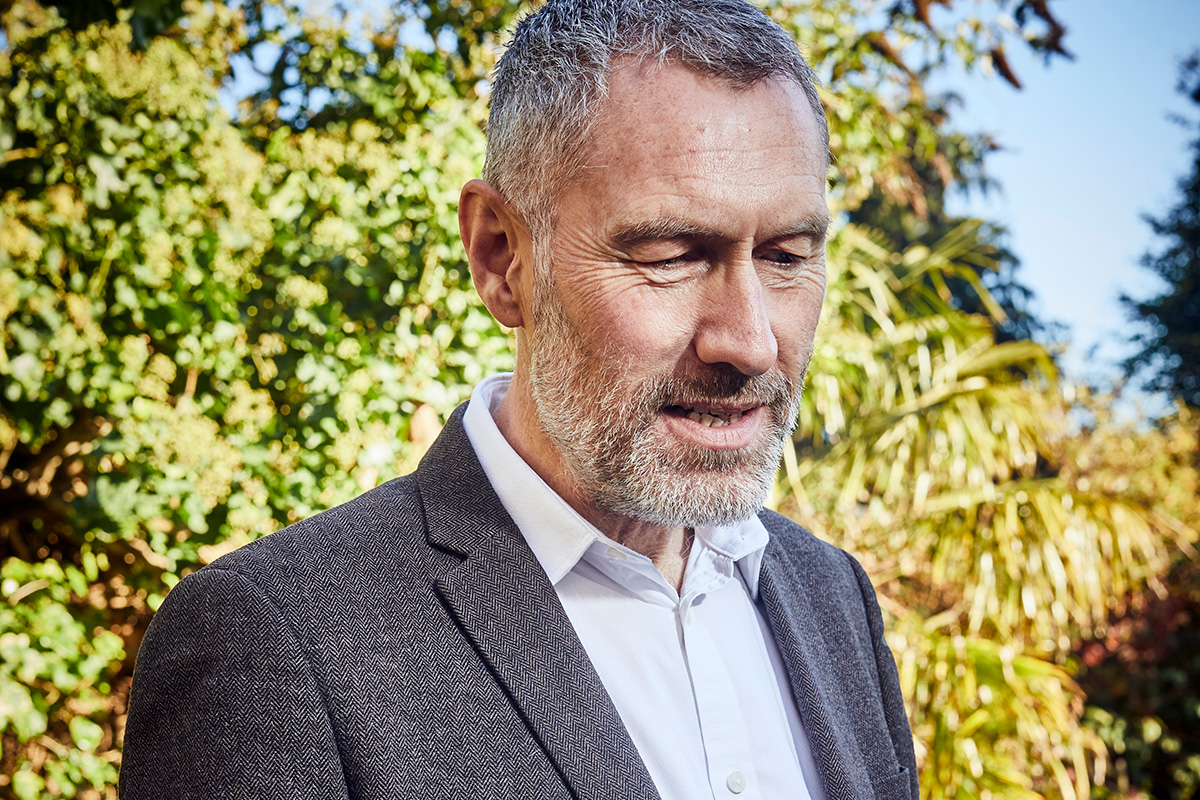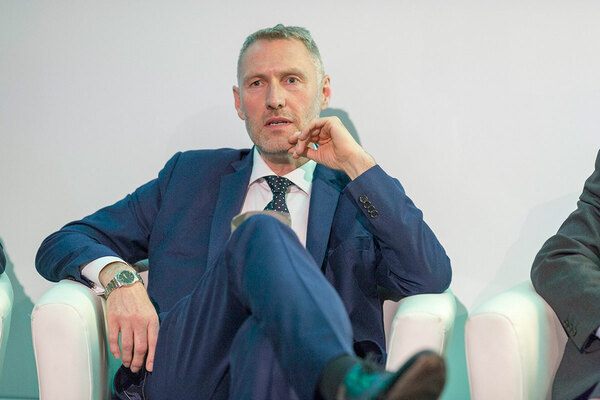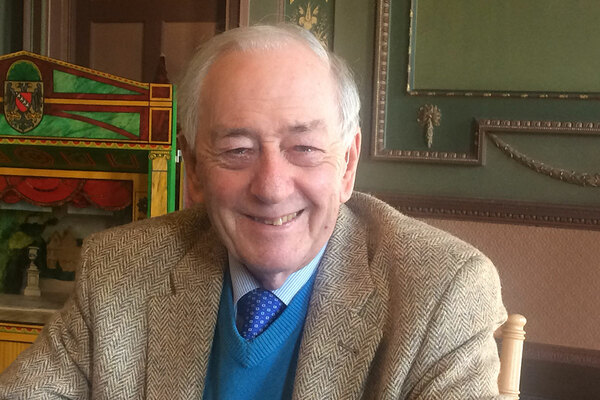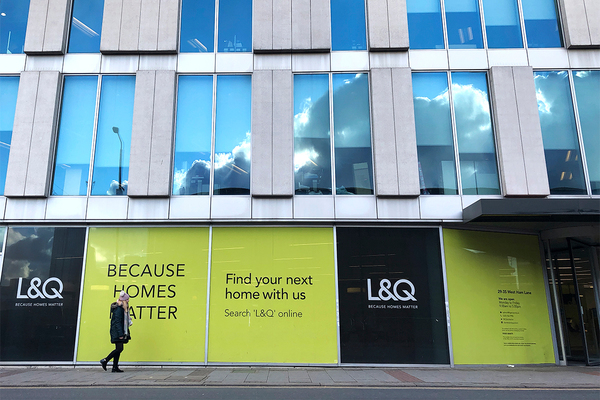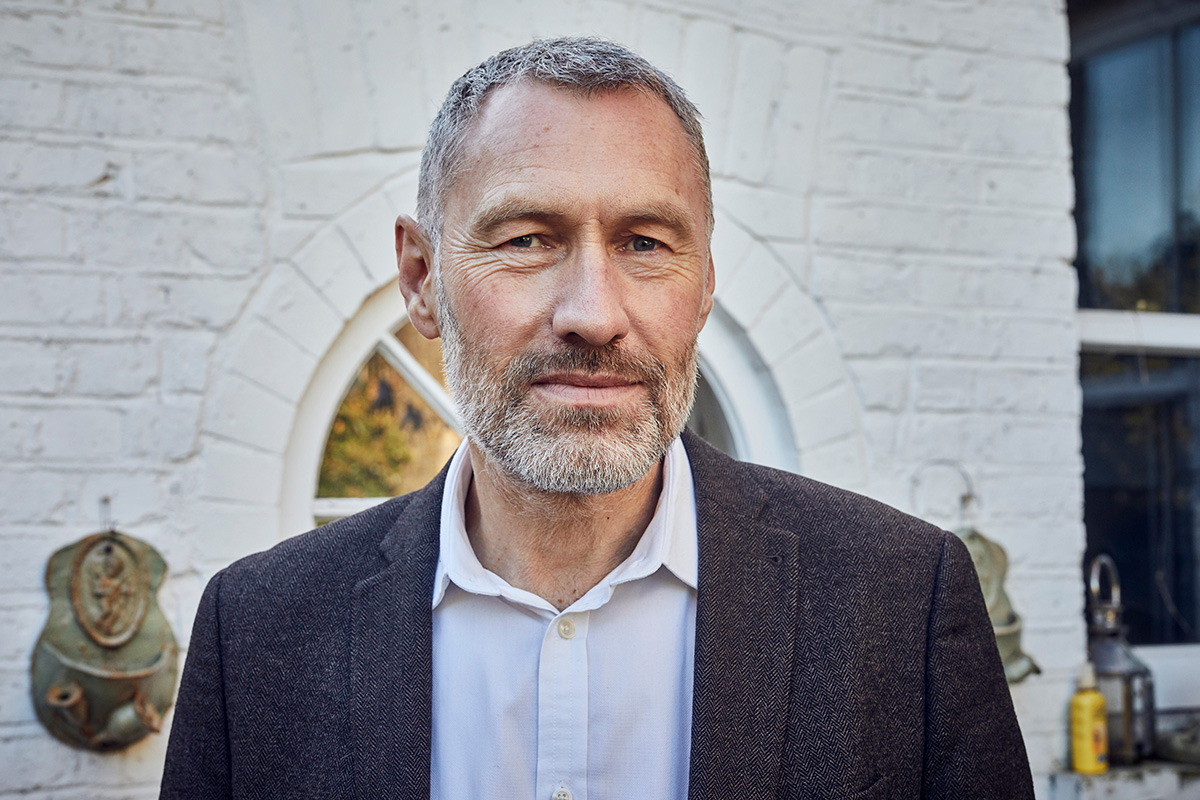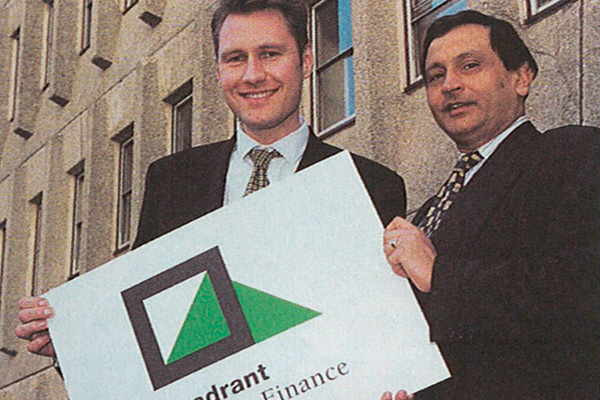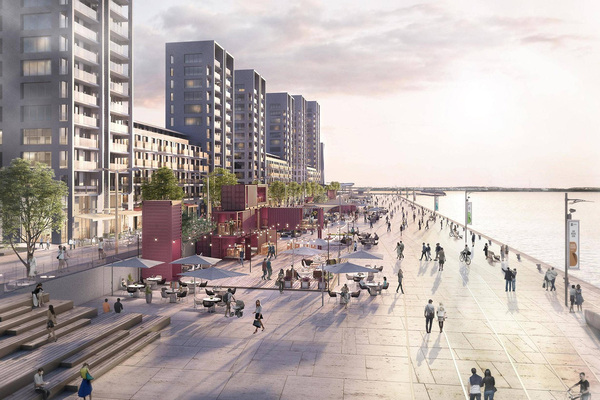L&Q’s man: David Montague reflects on 12 years as chief executive
As David Montague’s 12-year tenure as chief executive of L&Q draws to a close, Peter Apps speaks to the man himself about the organisation’s purpose and history – and what is in store for its future
David Montague is in a reflective mood. “We had a choice to make: either down tools and wait for the money to come back or to find our own way, and I think…”
He pauses and trails off before continuing. He has just been asked about the impact on the social housing sector of the 2010 grant cuts and the commercialisation that followed. Given L&Q’s strong balance sheets throughout most of this decade, it is a question you might expect its outgoing chief executive to answer bullishly.
But he does not. “I think,” he continues, “that somewhere along the way we lost sight of the importance of investing in our existing homes.”
This comment is immediately caveated. “Maybe we didn’t lose sight,” he says. “We achieved some extraordinary things, but it was bloody hard work and we had to make some major sacrifices. In order to fund our future we diversified, we consolidated, we jumped on the efficiency bandwagon and, as necessary as those things were, I think they were also a bit of a distraction.”
This sort of introspection will not surprise those who have spoken to Mr Montague frequently during his 12 years at the helm of L&Q. But it may come as more of a surprise to those who see the 105,000-home organisation as, in the words of one book about the history of social housing, “one of the most aggressively entrepreneurial of the new breed of housing associations”.
L&Q has been on a bumpy path over Mr Montague’s time: a seemingly meteoric rise in growth, financial muscle and development output was jolted in recent years by the impact of the economic downturn, and the emergence of some serious quality issues in some of its homes.
It is Mr Montague who led this rise and who is still trying to guide the association through this difficult terrain, ahead of his departure next year. Inside Housing caught up with him to reflect on the journey.
David Montague was born in Woolwich, south-east London, in 1963. His family lived on the top floor of a big house not far from the river, where his father worked. All the men in his family were lightermen and watermen who worked the barges in London’s docks.
But the city was changing: the docks were moving down the river to Essex, work was drying up and the house his family lived in was listed for demolition and replacement with more modern housing.
The family was moved to a new social housing estate – Middle Park Estate in Eltham, Greenwich. “My memories of growing up are a huge sprawling council estate in the borough of Greenwich and my school was in the middle of the estate, the shops we used were on the estate, all of my friends, my family lived on the estate. I never had any reason to leave that place,” he recalls. “My whole world when I grew up was social housing; I didn’t know there were any other tenures.”
It was not until he went to a secondary grammar school that he realised there was a stigma attached to the place his family lived.
“My friends’ parents came from professional backgrounds and my parents came from a working-class background and I felt that difference,” he says. “The fact that I’d lived in a council house was a source of amusement to my school friends.”
It is this background that drove his career choices. “I think it’s that which has driven my desire to work in and transform social housing. It provided my family with the stability we needed to be a family – it provided an enormous role in my life growing up. But I’ve seen also over the years how people are disadvantaged as a result of the place they are born and it’s just so utterly unfair.”
And so it was that in 1988, in his mid-20s after a stint working for Ken Livingstone in the twilight days of the Greater London Council (GLC), Mr Montague took a job at L&Q – and he has worked there ever since.
“Ken might have had a great vision, but that vision wasn’t connected to the engine room. I learned at the GLC that you’ve got to have both,” he says.
David Montague outside his home in south-east London (Picture: Jon Enoch)
At L&Q this vision was clear: commercial success would drive and fund its purpose as a housing charity. It has always been a leader in this regard. In the 1990s Mr Montague helped to establish a new financing vehicle to begin raising money from the capital markets and a series of mergers in the 2000s saw the organisation grow to more than 50,000 homes in size by 2008, when Mr Montague took over.
At this point, a government-commissioned report on social exclusion by the academic John Hills had just been published. This connected with the vision Mr Montague had always held about social housing.
“I’ve seen that happen to the place I grew up over time,” says Mr Montague. “The Hills report was seminal – one of the things that made me want to be a chief executive, because it set out so clearly what we had to tackle.”
“My memories of growing up are a huge sprawling council estate in the borough of Greenwich and my school was in the middle of the estate”
But then came the recession, the change of government, the cuts and the need to drive even more commerciality to fund the social purpose.
“There has always been this tension between commercial and social, and there has always been a fear that one could consume the other,” he says. “But that tension has always existed.”
L&Q was arguably one of the only organisations to make a true success of this new funding environment. In 2012, it turned over £368m and booked a surplus of £95m. By 2020, even amid a serious sales downturn in London, its turnover was £915m and its surplus was £414m. The organisation has used this money to build almost 10,000 homes in the past four years, making it a top 10 national house builder. It has delivered 2,764 of them for below market rent and more than half for affordable tenures of all kinds. No one in the sector can match this output.
L&Q has also pushed the boundaries of what a housing association’s ambition can look like with regard to development. Much was made of its stated pledge in 2016 to build 100,000 homes in a decade (and it remains a considerable way off) but it has at least set the course.
Monster projects such as Barking Riverside remain in progress, but if it succeeds in building out this 10,000-home scheme, it will have achieved something the private sector has not. The plans were moving at a glacial pace under private builder Bellway before L&Q bought out the scheme in 2016. Even more significantly, L&Q’s acquisition of Gallagher Estates – one of the largest strategic land companies in the UK – means it is now a master developer with the capability to grow even further.
Mr Montague (left) at the launch of Quadrant Housing Finance in 1997
“We could so easily have said that next [year’s housebuilding target] will be this year plus inflation,” he says. “We could so easily have done that. But if you set yourself a really bold target it forces you to think differently.”
There have been difficulties, too. The brakes had to be applied to the association’s ambitions to some degree in 2018, and in 2019 L&Q put new projects on pause and instituted a recruitment freeze. The drop-off in home sales driven by Brexit, plus the need to invest millions in its existing stock because of fire safety and other factors, shrunk its available headroom.
Behind the scenes there was also some discontent. The organisation had recently merged with East Thames, it was stripping out cost and there was a feeling of dissatisfaction.
“One of the most important jobs of a chief executive is to listen, and I listened. And they said, ‘We see a disconnect between the vision of this organisation and what is being delivered on the ground.’ People thought we were pursuing this 100,000-home rainbow at the expense of our existing residents, at the expense of their homes,” says Mr Montague. “So it was really important to root the organisation, to reconnect the organisation with its social purpose, to make investing in our existing residents our first priority.”
“One of the most important jobs of a chief executive is to listen, and I listened”
There were a couple of high-profile complaints about serious quality and repair issues with its stock. L&Q admitted failings and commissioned an independent report that described “weaknesses” and a “poor service”, with a warning that the failings could be replicated elsewhere.
Some of these issues do seem to be continuing. A residents’ group formed in 2019, Homeowners of L&Q, raised concerns about sharply rising service charges and a struggle to gain information about where these costs are resulting from; serious problems with communal heating and hot water in a number of new build schemes; and difficulty raising complaints. The company’s Trustpilot page does not tell a happy story.
Effort is clearly being made to turn this around: L&Q spent £233m on maintenance in the last financial year and £251m the year before, and it has listed maintenance transformation among its key ambitions for the year. But with 105,000 homes, it is inevitable that change comes slowly.
Into the mix of this came the Grenfell Tower fire in June 2017. L&Q owns 200 high rises. Some needed cladding removed. Others required safety measures of other kinds. The organisation has turned much of the financial strength it had for new build over to paying for this work. Mr Montague says this will continue.
In numbers: L&Q development since 2016/17
9,985
Homes built of all tenures
5,430
Affordable homes
2,764
For below market rent
Source: Inside Housing’s Top 50 Biggest Builders
L&Q’s Barking Riverside project is set to deliver more than 10,000 homes
“We all need to invest more to ensure that our residents are safe in their homes. That’s what L&Q has done,” he says. “The last thing I will do [as chief executive] is to gain approval for a new five-year plan. One thing that is absolutely clear over the next five years is that safety will be the very top priority and that’s because it’s exactly where it needs to be.”
Mr Montague says L&Q has begun to make progress on getting all of its blocks surveyed – a major challenge that is currently preventing thousands of its leaseholders from moving home. Despite a shortage of fire engineers, it has arranged a programme for all 200 of its high rises to receive assessments by March next year. Medium rises will follow later.
It is also swallowing the cost of waking watches, rather than billing leaseholders. For those who cannot move, it has allowed them to sublet. These are all steps that many organisations have not taken.
But it has not ruled out passing on costs to leaseholders in the longer term. In a letter to residents it said it will “pursue all reasonable steps” before doing so.
“The first thing I would say [to leaseholders] is that we are going to keep you safe in your home,” he says. “We will do whatever it takes… But this is not a housing association problem, this is not an L&Q problem, it is a national problem and it needs a national government response.”
For his part, Mr Montague says he is “not retiring”, but may look for a leadership role at a social enterprise organisation – perhaps one linked to “music and the arts”, as well as “catching up on some box sets”.
For L&Q, a recruitment process is under way with a successor expected in the spring. Mr Montague says they have “cast a wide net”.
As he reaches the end of his time at L&Q, how does Mr Montague feel about the characterisation of his organisation as particularly commercially minded? “Of course it has frustrated me, but there’s an element of truth to it as well,” he says. “We have pursued what people refer to as a commercial agenda. But that’s because we want to build as much social housing as we can and we want to invest as much money as we can into our communities.”
Much can be said about Mr Montague’s time at L&Q. But this is the nub of what he has always sought to do. And while there have been bumps along the way, it remains – in the simplest terms – precisely what he has achieved.
Sign up for the IH long read bulletin
Already have an account? Click here to manage your newsletters
